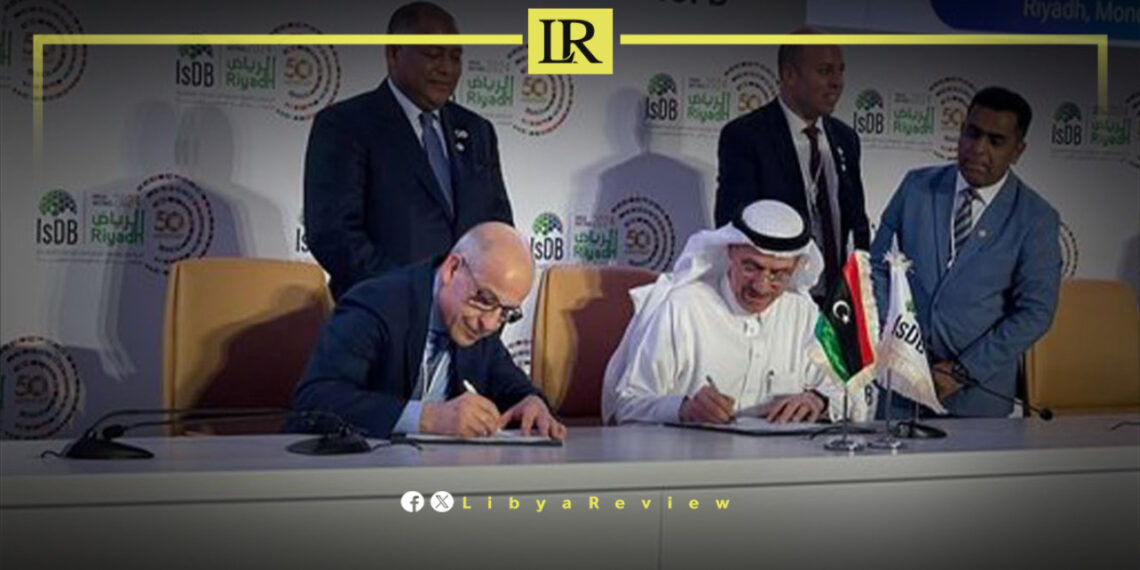The Governor of the Central Bank of Libya (CBL), Al Siddik Al Kabir signed a Memorandum of Understanding (MoU) with the President of the Islamic Development Bank Group (IsDB), Muhammad Al Jasser. The signing ceremony took place in Riyadh, Saudi Arabia, and was attended by various ministers from Libya’s Government of National Unity (GNU) and representatives from international institutions.
According to the Central Bank of Libya’s Media Office, the MoU encompasses the establishment of the National Fund for Economic Empowerment. This initiative is designed to support and finance micro, small, and medium enterprises (MSMEs) in Libya. The fund represents a strategic effort by the Central Bank of Libya to activate and enhance the role of the private sector within the country.
This collaboration marks a pivotal step in Libya’s ongoing efforts to create a resilient and diversified economy. By focusing on MSMEs, the Central Bank of Libya and the IsDB aim to foster entrepreneurial spirit, create jobs, and drive sustainable economic growth across the nation.
Libya has been in chaos since a NATO-backed uprising toppled longtime leader Muammar Gaddafi in 2011. The county has for years been split between rival administrations.
Libya’s economy, heavily reliant on oil, has suffered due to the ongoing conflict. The instability has led to fluctuations in oil production and prices, impacting the global oil market and Libya’s economy.
The conflict has led to a significant humanitarian crisis in Libya, with thousands of people killed, and many more displaced. Migrants and refugees using Libya as a transit point to Europe have also faced dire conditions.
The planned elections for December 2021 were delayed due to disagreements over election laws and the eligibility of certain candidates. This delay has raised concerns about the feasibility of a peaceful political transition.
Despite the ceasefire, security remains a significant concern with sporadic fighting and the presence of mercenaries and foreign fighters. The unification of the military and the removal of foreign forces are crucial challenges.


